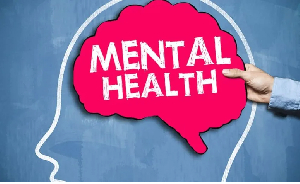 One cannot walk on a street in the city without meeting a mentally challenged person.
One cannot walk on a street in the city without meeting a mentally challenged person.
There is growing concern over the increasing number of cases of mentally challenged people on the streets of Mbarara City.
One cannot walk on a street in the city without meeting a mentally challenged person.
Dr Thomas Kabagambe, the principal psychiatry officer at Mbarara Regional Referral Hospital, said since the year began, they have received 751 new mentally ill cases and every month, they receive between 120 and 140 patients.
“The issue of mental disorders is increasing every day at Mbarara Regional Referral Hospital,” explained Dr Kabagambe.
He added that most of the patients are youth aged between 15 and 30 years and that these come mainly from Mbarara City, as well as Mbarara and Isingiro districts.
Dr Kabagambe attributed the increasing numbers to increasing incidences of drug abuse.
“Abuse of drugs such as cocaine, cannabis, alcohol, and marijuana is on the rise throughout the whole country. Several concoctions are being made and many of the drinks that people take have made them develop mental problems,” he said.
Mbarara City North Division Mayor Jomo Mugabe said 95 percent of mental illnesses are because of drug addiction.
“There is a rise of alcoholic drinks on the market, some of these are adulterated and not registered with Unbs, which has also increased people’s madness,” he noted.
Mr Mugabe said these mentally challenged people are becoming a problem and tainting the image of the city.
“The challenges we have with them is that some defile kids, kill innocent people, they make our city look dirty, they lead to family breakouts, the country loses production and also there are early pregnancies to young girls. We have tried to capture them but we don’t have where to put them,” he said.
Mr John Kavigi, the chairperson of the Social Service Committee at Mbarara City Council, said economic hardships, especially unemployment, are partly to blame for the increasing mental illnesses. “Because of the economic hardships, stress and depression, people seek solace in use of drugs, which causes them to run mad,” he noted.
“The patients are so many and there is always a drug shortage, we usually get stockouts. We also have the issue of caretakers just dumping patients here and we cannot afford to look after them because we don’t have a budget for feeding them. Besides the bed capacity is low, we cannot accommodate beyond 40 patients and doctors are not enough,’’ he explained.
Ms Asiati Gamba, the founder of Lugazi Youth Training and Skilling Group, an organisation that rehabilitates street children, said many young people live on the streets because of poverty.
“I joined the street life. We were around 30 other young girls, 20 have since died of HIV, but eight ran mad because of drugs. Drugs are a big challenge, especially in urban areas, and authorities need to fight this,” she said.
Mr Abbas Kazibwe, the secretary for community development and coordinator for local councils in Mbarara City, said they are also worried about the increasing cases of mental health. “Besides increasing cases of insecurity, we are losing a productive labour force to alcohol,” he said.
Rwizi regional police spokesperson Samson Kasasira said whenever they get people who are mentally sick, they always take them to Mbarara Regional Referral Hospital.
“We don’t have the statistics of those, but these people can be dangerous in communities as they are also security threats,” Mr Kasasira said.
According to the latest data by the World Health Organisation (WHO), at least 7.4 percent of Ugandans are affected by common mental disorders, particularly depression, anxiety, and alcohol disorders.